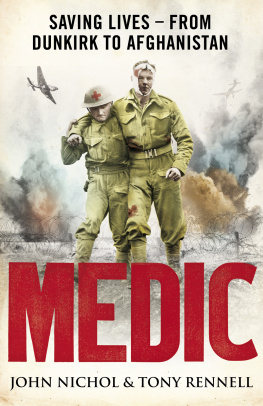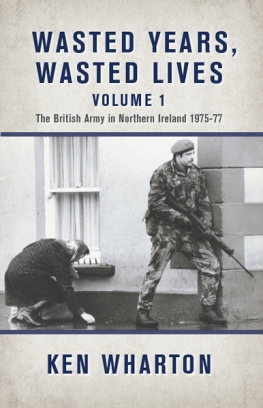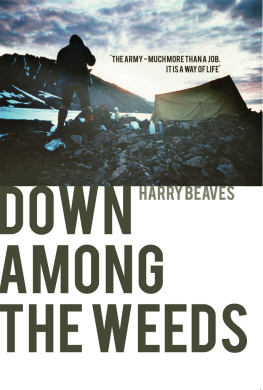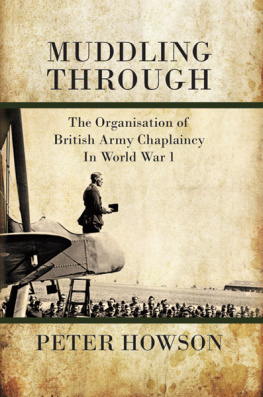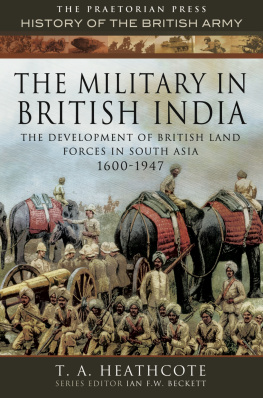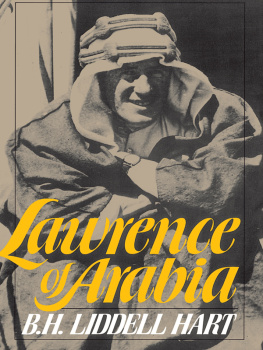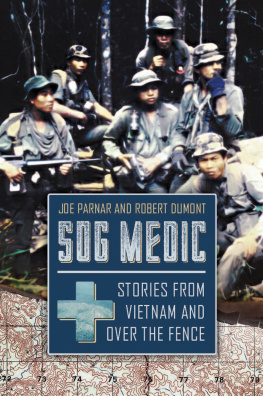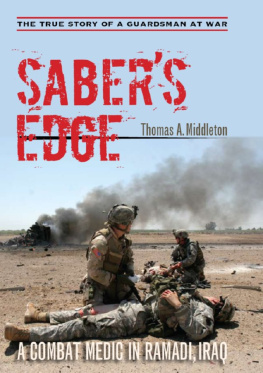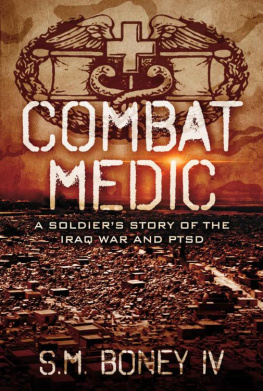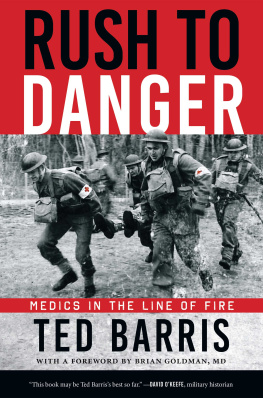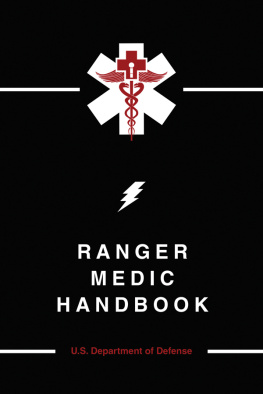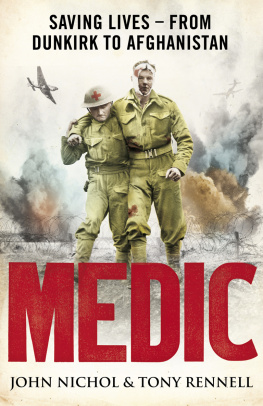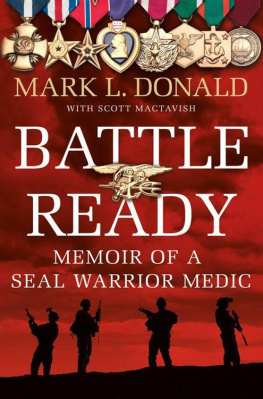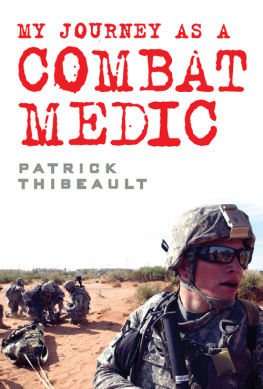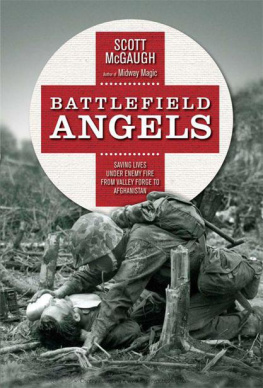Medic
Saving Lives from Dunkirk to Afghanistan
JOHN NICHOL AND TONY RENNELL
VIKING
an imprint of
PENGUIN BOOKS
VIKING
Published by the Penguin Group
Penguin Books Ltd, 80 Strand, London WC2R 0RL , England
Penguin Group (USA) Inc., 375 Hudson Street, New York, New York 10014, USA
Penguin Group (Canada), 90 Eglinton Avenue East, Suite 700, Toronto, Ontario, Canada M4P 2Y3
(a division of Pearson Penguin Canada Inc.)
Penguin Ireland, 25 St Stephens Green, Dublin 2, Ireland
(a division of Penguin Books Ltd)
Penguin Group (Australia), 250 Camberwell Road, Camberwell, Victoria 3124, Australia
(a division of Pearson Australia Group Pty Ltd)
Penguin Books India Pvt Ltd, 11 Community Centre, Panchsheel Park, New Delhi 110 017, India
Penguin Group (NZ), 67 Apollo Drive, Rosedale, North Shore 0632, New Zealand
(a division of Pearson New Zealand Ltd)
Penguin Books (South Africa) (Pty) Ltd, 24 Sturdee Avenue, Rosebank, Johannesburg 2196, South Africa
Penguin Books Ltd, Registered Offices: 80 Strand, London WC2R 0RL , England
www.penguin.com
First published in 2009
Copyright John Nichol and Tony Rennell, 2009
The moral right of the authors has been asserted
All rights reserved
Without limiting the rights under copyright reserved above, no part of this publication may be reproduced, stored in or introduced into a retrieval system, or transmitted, in any form or by any means (electronic, mechanical, photocopying, recording or otherwise), without the prior written permission of both the copyright owner and the above publisher of this book
A CIP catalogue record for this book is available from the British Library
ISBN: 978-0-14-192111-2
By the same authors
Home Run: Escape from Nazi Europe
The Last Escape
Tail-End Charlies
Also by John Nichol
Tornado Down (with John Peters)
Team Tornado (with John Peters)
FICTION
Point of Impact
Vanishing Point
Exclusion Zone
Stinger
Decisive Measures
Also by Tony Rennell
Last Days of Glory
When Daddy Came Home (with Barry Turner)
For Sophie and Harry
This book is dedicated to our countrys exceptional military medical personnel. Their courage is an inspiration.
List of Illustrations
Maps
Acknowledgements
There are many people who gave us their time and expertise as we wrote this book. Hundreds of medics, nurses, doctors and stretcher-bearers told us their personal stories, often reliving traumatic events long since buried. We are grateful to them all. Sadly, we could use only a fraction of the stories we heard, but we hope we have done justice to you all.
Particular thanks also go to:
Major General Alan Hawley, Director General of Army Medical Services, whose support for this project ensured we had access to all levels of the military medical system.
Captain (Retired) Peter Starling, Director of the Army Medical Services Museum, Keogh Barracks, Aldershot, whose depth of knowledge of the history of military medicine was invaluable. He and his staff, especially the curator Derek Marrison, provided unstinting assistance during our visits to the museums amazing archive.
Colonel Tim Hodgetts, Honorary Professor of Emergency Medicine, University of Birmingham, who shared with us his considerable expertise in the changes in military emergency medicine in recent years, told us of his own experiences in the front line and cast his expert clinical eye over the manuscript.
Squadron Leader Damien van Carrapiett at RAF Air Command, who provided invaluable assistance, recounting his own experiences and putting us in contact with numerous serving and retired personnel.
Wing Commander Mike Priestly, Commanding Officer of the Defence Medical Services Training Centre, and his excellent staff, for allowing us to join them on one of their intensive training exercises.
The administrators and members of the Army Rumour Service and Rum Ration websites, for access to inside information, contacts and expertise. The good-natured banter of all those involved was a welcome reminder of the strength of character and camaraderie of our military personnel.
Frank Garside from the British Limbless Ex-Servicemens Association, Major (Retired) Marie Ellis, Regimental Secretary Royal Army Medical Corps, and Captain Bill Anderson of the Queen Alexandras Royal Army Nursing Corps, all of whom provided contacts to many serving and retired personnel.
Cathy Pugh, General Manager of the Second World War Experience Centre in Leeds, who searched out accounts from the centres archives, and Rod Suddaby of the Imperial War Museum, London.
Patrick Bishop, Max Arthur and Hugh McManners for allowing us to tap into their knowledge and expertise of the Falklands war and operations in Afghanistan. Paul Carter for his matchless critique of the manuscript. Sarah Helm, David OReilly and Brian Mac-Arthur for help and encouragement.
Group Captain Andy Bowen, Mark Pillans, Sam Harrison and Laura Kerr at the Ministry of Defence, who facilitated contact with serving military personnel and clearance for them to tell their stories.
Our agent Mark Lucas and our editor Eleo Gordon, and the team at Penguin Books.
Finally, and perhaps most importantly, our wives, Suzannah and Sarah, for their constant love, support and advice.
Preface
Although it is November the fifth, the sharp crackles and bangs snapping out over the cold, wet Hampshire countryside are not fireworks. They are gunfire, blanks admittedly, but still aggressive in intent. Along a forest trail, local walkers with their dogs are ushered away in a different direction, back to cosy, safe homes. Here a batch of young men and women are learning about war. Soon they will be off to join it, in Afghanistan, a hot and dry place as different from this soggy wood on the edge of the garrison town of Aldershot as it is possible to imagine. What makes the day even chillier for those of us watching them at the Defence Medical Services Training Centre at Keogh Barracks is the very real prospect that some will not return in one piece and some not at all. A patrol is coming our way, creeping in and out of the trees in their khaki coveralls, Bergen rucksacks on their backs, SA80 assault rifles held across their chests, fingers twitching, eyes alert. Ambush! A seasoned Scottish sergeant leaps out into their path and blasts at them with rapid fire from his automatic weapon. They return fire, scatter, hug the ground, call out instructions and guidance to each other. Casualties! Two men are down, simulating the wounds they were assigned for the exercise. One is very quiet, just lying there, not moving. The other is screaming, moaning, groaning, calling for help, swearing like a trooper. Medic! I need a sodding medic, for effing sake! he yells. He is in luck. They are close by, ready to go into action, just as medics have been through centuries of warfare. This is what these particular youngsters are here for. They are members of the Royal Army Medical Corps and they are training to go into combat and save the lives of their comrades under fire.
The drill they follow is well defined and precise. First they must see off the enemy and secure the ground. Defensive pickets are posted, spreadeagled in the wet bracken with clear firing arcs through the trees and down the forest path.
If you look closely at the faces under the helmets of those gripping the rifles, softer features and a few straggles of longer blonde hair identify the girls. It is a surprise to find them in such a combative situation, armed and ready to fight. Theoretically, women are not allowed on the front line in the British Army, denied jobs where the primary duty is to close with and kill the enemy face to face, as the Ministry of Defence defines it. They are thus excluded from the infantry, the cavalry and the armoured corps. But they are now a large and much valued part of the military medical system. They get no special treatment and nor would they ask for it. As medics, they are every bit as exposed to danger as the men and every bit as courageous in the line of fire.

